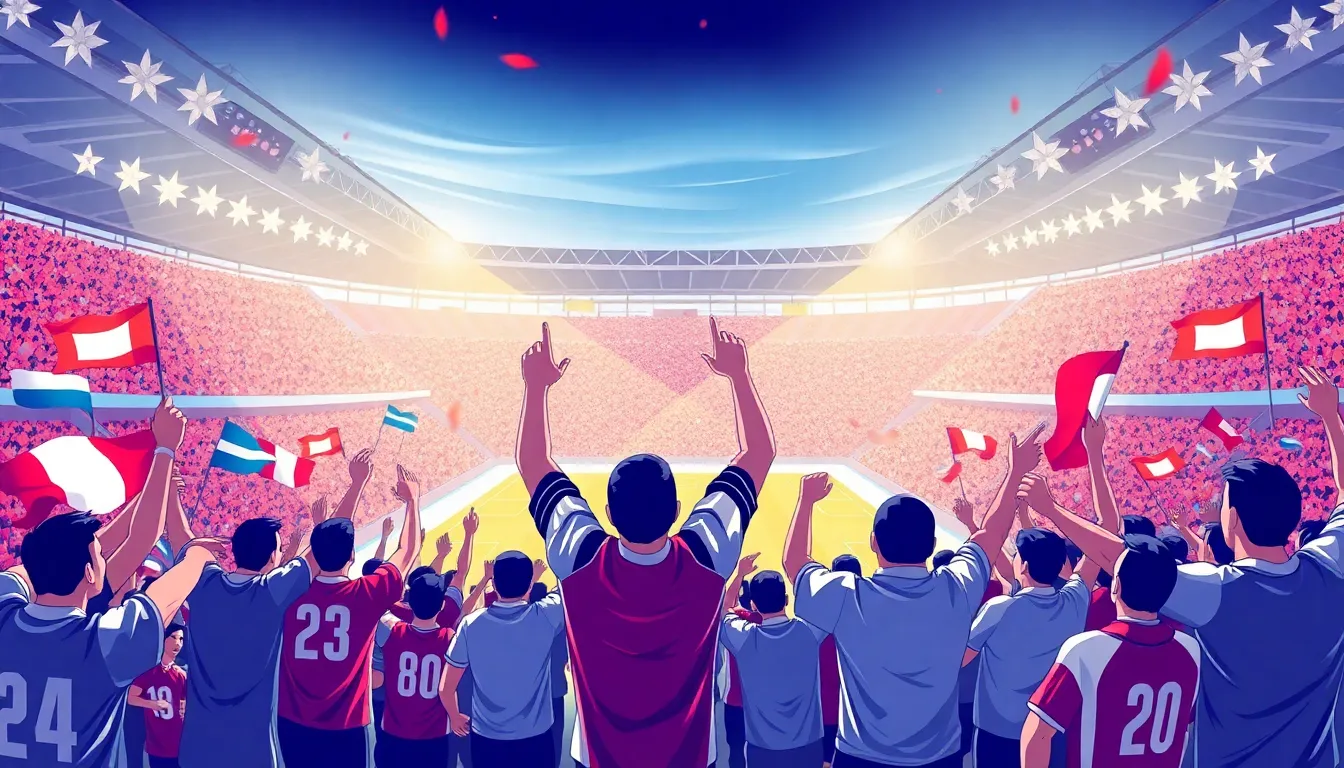Table of Contents
ToggleIn a world where acronyms reign supreme, FIFA decided it was time for a little rebranding magic. Yes, folks, the legendary “Fédération Internationale de Football Association” has traded in its formal title for something a bit snappier: “FC.” But why the shift? Is it a clever marketing ploy or just an attempt to sound cooler at parties?
As football fans scratch their heads in confusion, the answer might just surprise them. This change isn’t just about aesthetics; it’s a bold move to embrace a new era of global football. With the sport evolving faster than a striker on a breakaway, FIFA aims to keep pace with the game’s growing popularity. So buckle up as we dive into the amusing yet strategic reasons behind this rebranding and what it means for the beautiful game.
Background Of FIFA
FIFA, established in 1904, is the governing body for international football. The full name stands for “Fédération Internationale de Football Association.” FIFA’s primary role involves organizing major international tournaments, including the FIFA World Cup, which debuted in 1930.
FIFA’s structure consists of six continental confederations: AFC (Asia), CAF (Africa), CONCACAF (North and Central America), CONMEBOL (South America), OFC (Oceania), and UEFA (Europe). Each confederation manages its regional competitions and national associations, influencing local football landscapes.
Initially, FIFA emphasized amateurism. However, the rise of professionalism in the 1920s forced FIFA to adapt, leading to the formalization of rules and regulations governing the sport. The inaugural World Cup significantly bolstered FIFA’s credibility and influence on a global scale.
FIFA’s responsibilities extend beyond tournament management. The organization also focuses on developing football infrastructure, implementing regulations, promoting inclusivity, and ensuring fair play worldwide. It invests in grassroots programs, enhancing access to football in developing nations and fostering talent.
Throughout its history, FIFA faced challenges, including controversies related to governance and allegations of corruption. Despite these issues, FIFA remains a central figure in the football community. The recent rebranding to FC underscores an effort to remain relevant and responsive to the global football landscape, particularly as the fan base diversifies.
Reasons For The Change

FIFA’s transition to the designation “FC” stems from multiple strategic motivations aimed at enhancing its position in the global football community.
Global Branding
Global branding influences FIFA’s rebranding strategy. “FC” presents a universal appeal, simplifying the organization’s identity for international audiences. This shift aligns with the trend of clubs and leagues adopting abbreviated titles. By easing recognition, FIFA enhances connectivity with diverse fan demographics. The rebranding also mitigates language barriers, fostering a sense of unity among football enthusiasts. Such a change allows FIFA to maintain a competitive edge in a crowded market, where simplified names command attention and facilitate marketing efforts.
Modernization Efforts
Modernization efforts drive FIFA’s decision to adopt “FC.” The organization seeks to present a contemporary image that resonates with younger fans who favor streamlined branding. In an era where digital media dominates, concise naming enhances visibility across platforms like social media and streaming services. Additionally, the rebranding reflects FIFA’s commitment to innovation within the sport, emphasizing adaptability and responsiveness to the evolving football landscape. By embracing modernization, FIFA aligns itself with the expectations of fans who prioritize engagement and accessibility in their sporting experiences.
Impact On Football Culture
FIFA’s rebranding to “FC” significantly influences football culture globally. This shift not only reflects changing perceptions but also redefines the relationship between the organization and its fan base.
Reactions From Fans
Fans have shown mixed reactions to FIFA’s rebranding. Some supporters appreciate the modernization and simplicity of “FC,” feeling it strengthens global connectivity. They emphasize that a concise name resonates more effectively, especially among younger audiences. Conversely, a portion of the fan base expresses skepticism, arguing that the change dilutes FIFA’s storied history. Traditionalists prefer the full name, valuing the legacy embedded in “Fédération Internationale de Football Association.” Debates about the rebranding have sparked discussions on social media, indicating that fans are deeply engaged in the narrative surrounding this transformation.
Influence On Other Leagues
FIFA’s change to “FC” sets a trend that influences other leagues and organizations. Several continental confederations and domestic leagues consider similar rebranding strategies to enhance their appeal. The shift may encourage teams to adopt more concise names, mirroring the successful models of clubs like FC Barcelona and FC Bayern Munich. Simplifying names aims to make teams more recognizable across diverse markets. This trend can lead to stronger branding efforts and greater marketability, attracting new fans and sponsors. Leagues may respond by further integrating technology and media to promote these updated identities, emphasizing the importance of adapting to a global audience.
Future Prospects
FIFA’s transition to “FC” paves the way for several future developments in global football. The rebranding positions FIFA to capitalize on emerging markets and demographics, enhancing its global appeal. With an eye on digital engagement, FIFA can use streamlined branding to foster connections with a younger audience. The modernized identity simplifies communication, making it easier for fans worldwide to engage.
Increased focus on accessibility and inclusivity will likely shape FIFA’s initiatives. Expanding outreach programs will promote grassroots football, especially in underrepresented regions. By investing in local infrastructure, FIFA can foster talent and enthusiasm for the sport across diverse communities.
FIFA’s new identity facilitates partnerships with commercial brands. Organizations may find value in aligning with an entity that embodies modernity and global engagement. This strategic collaboration can enhance sponsorship opportunities, providing financial benefits that support football development initiatives.
The rebranding could also spark further shifts in football culture. Clubs and leagues may adopt similar naming conventions, leading to a trend toward simplified titles. Such changes could foster a sense of unity within global football, as recognizable brands emerge across competitions.
As FIFA embraces innovation, it’s poised to redefine its relationship with fans. Engaging storytelling and interactive content will likely become essential components of FIFA’s strategy. This approach will strengthen community building among supporters, encouraging deeper connections with the organization.
FIFA’s rebranding to “FC” symbolizes a transformative leap forward. It reflects an adaptive organization ready to navigate the complexities of a rapidly evolving landscape while preserving its core commitment to the sport and its global community.
FIFA’s shift to “FC” represents a significant evolution in the organization’s approach to global football. By adopting a more concise identity, FIFA aims to resonate with a diverse and modern audience. This rebranding not only enhances recognition but also reflects FIFA’s commitment to innovation and adaptability in an ever-changing landscape.
As discussions around this change continue to unfold among fans, it’s clear that the impact of this decision will extend beyond mere branding. The move sets a precedent for other football organizations, encouraging a trend towards simplified names that foster greater connection and engagement. Ultimately, FIFA’s transformation is a forward-thinking strategy that seeks to strengthen its relationship with fans while promoting the sport on a global scale.




